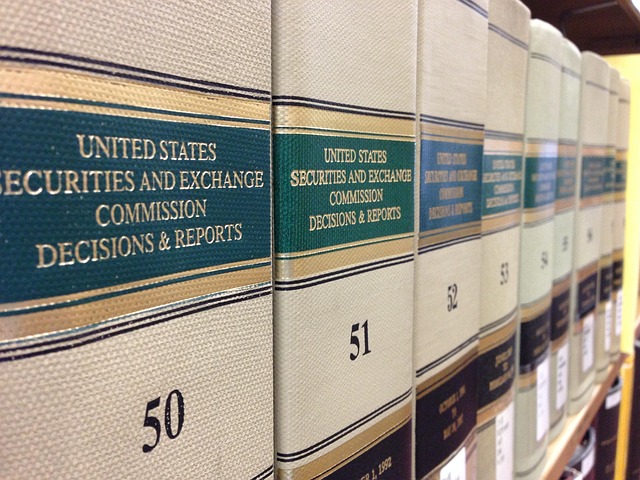Navigating plea bargains in felony cases is a strategic process where prosecutors and defense attorneys negotiate lesser charges for guilty clients. This involves analyzing evidence, witness credibility, and understanding client finances. Successful strategies balance guilt recognition with damage mitigation, offering favorable verdicts. These tactics impact criminal justice approaches nationwide, especially for first-time offenders and complex financial crimes. While plea bargains may provide resolution, they don't always meet victim expectations of restitution or punishment.
In the intricate landscape of financial crime investigations, plea bargains play a pivotal role in shaping outcomes. This article delves into the nuanced world of navigating plea bargains in felony cases, exploring key strategies and their implications. We dissect the process, from understanding plea agreements to negotiating effectively, while shedding light on the broader effects on victims and justice delivery. By examining these aspects, we aim to equip readers with insights into this critical component of financial crime probes.
- Understanding Plea Bargains in Financial Crime Cases
- Strategies for Negotiating Plea Deals Effectively
- Navigating the Impact on Victims and Justice Delivery
Understanding Plea Bargains in Financial Crime Cases

Navigating Plea bargains in felony cases is a complex aspect of financial crime probes, often shrouded in legal jargon and strategic considerations. These agreements, where a defendant pleads guilty to a lesser charge than originally accused, are not uncommon in such investigations. Prosecutors use plea bargains as a tool for efficient case management and reducing the burden on courts, while defense attorneys aim to secure the best possible outcome for their clients. In financial crime cases, where complex transactions and regulatory frameworks are involved, a well-crafted plea bargain can lead to winning challenging defense verdicts.
Across the country, legal experts have witnessed successful strategies that involve negotiating with prosecutors. For his clients, this approach offers a balance between acknowledging guilt and minimizing damage. By carefully examining the charges, evidence, and potential consequences, defendants can make informed decisions. This process demands meticulous planning and a deep understanding of both the law and the client’s financial background, ultimately aiming to achieve the best possible outcome in what could be a stressful and overwhelming situation.
Strategies for Negotiating Plea Deals Effectively

Navigating plea bargains in felony cases is a complex process that requires strategic expertise. Effective negotiation strategies can lead to favorable outcomes for both prosecutors and defendants, potentially avoiding lengthy jury trials. One key approach is to thoroughly understand the case facts and identify areas where the prosecution may be vulnerable, allowing for leverage during negotiations. This includes examining the strength of evidence, witness credibility, and potential legal defenses.
By presenting a well-reasoned argument highlighting these weaknesses, defense attorneys can convince prosecutors to offer more favorable plea deals. Additionally, offering alternative resolutions like community service or participation in diversion programs can be strategic moves, especially for first-time offenders. These tactics, when employed effectively across the country, have led to winning challenging defense verdicts and fostered a more balanced approach to criminal justice.
Navigating the Impact on Victims and Justice Delivery

Navigating the aftermath of a finance crime probe can be a daunting task for victims, who often find themselves entangled in complex legal procedures. When it comes to justice delivery, one significant aspect that plays a crucial role is the navigation of plea bargains in felony cases. This process involves strategic discussions between prosecutors and accused individuals, aiming to reach an agreement that could potentially alter the course of the trial. In light of the above, understanding how these negotiations impact both victims’ rights and the overall legal landscape is essential.
Victims seeking justice must be aware of their options during this pivotal phase. While plea bargains can offer a sense of resolution, it’s crucial to remember that they may not always align with the initial expectations of restitution or punishment. The complexity intensifies in cases with an unprecedented track record, where novel financial schemes or intricate fraud networks are exposed. In such scenarios, both victims and legal professionals must adapt, ensuring that justice is served fairly within the confines of these unique circumstances.
In the intricate landscape of financial crime investigations, understanding plea bargains is a pivotal step towards achieving justice. By effectively negotiating these agreements, legal professionals can ensure a more efficient delivery of justice while considering the impact on victims. This strategic approach, known as Navigating Plea Bargains in Felony Cases, plays a crucial role in balancing the pursuit of punishment with the need for a swift resolution. Through careful consideration and a focus on victim rights, these processes can help restore fairness without overwhelming the justice system.






